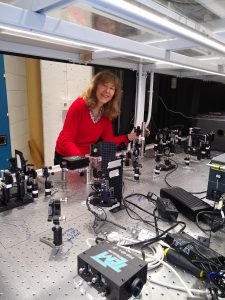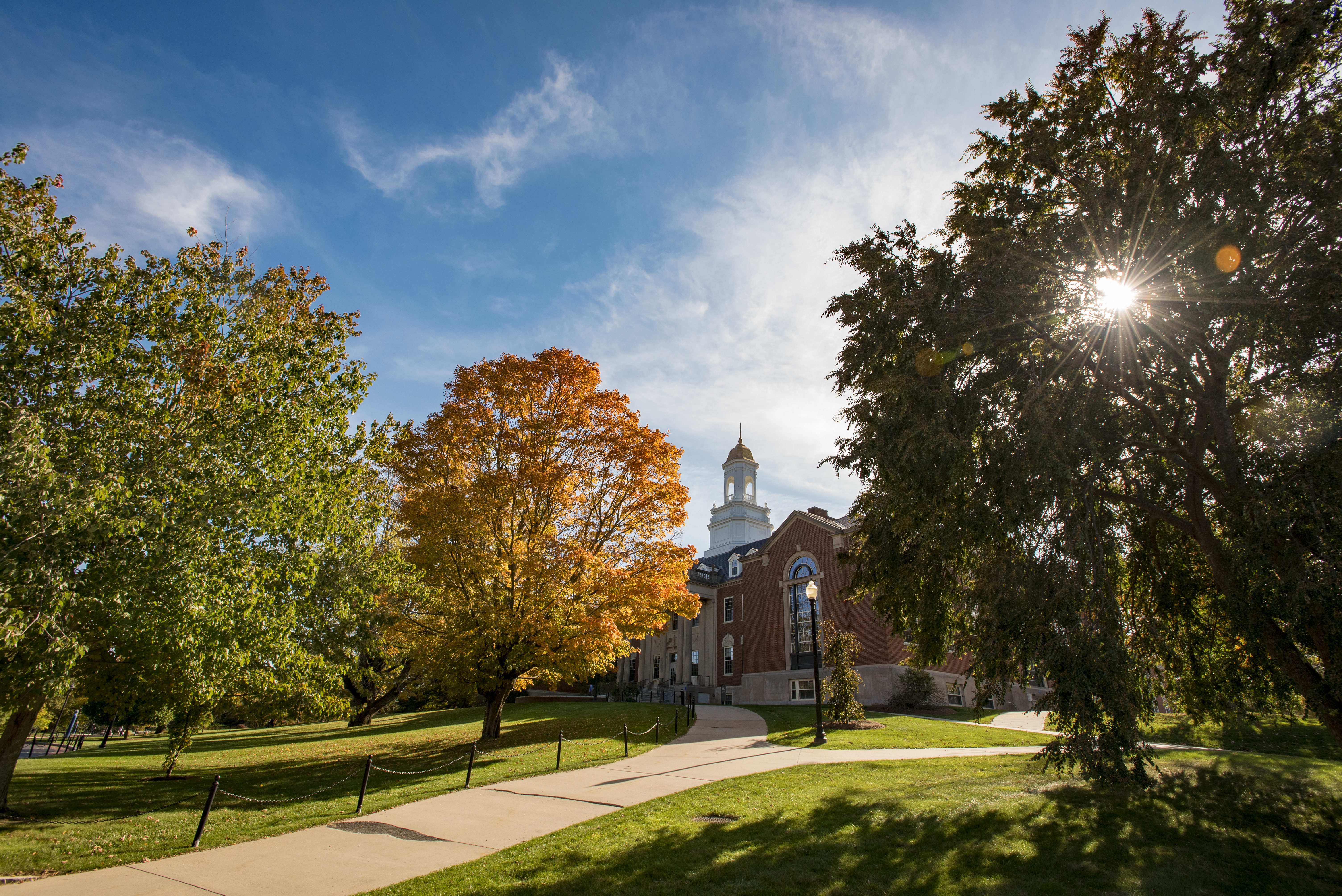UConn Professor of Physics Nora Berrah has been awarded the International Blaise Pascal Chaire d’Excellence, a prestigious honor whose previous winners include scientists and scholars from a wide range of disciplines, including multiple Nobel laureates. Her award was selected by a committee of scientists and voted on by the Permanent Commission Regional Council of the Région Île-de-France.
This award is bestowed to scientists of international reputation who are invited to conduct research in the Paris area. The goal is to establish international collaborations and exchange, as well as share science globally. In Berrah’s case, the collaboration is between the US and France, and in particular between UConn and the Commissariat à l’énergie atomique et aux énergies alternatives de Saclay (CEA, Paris Saclay). The collaborative work is aimed to push the frontiers of science, as well as enrich and facilitate international research.

The award was supposed to be used to carry out research in 2020 in a prestigious ultrafast laser lab in the Paris area. However, due to the COVID-19 pandemic, Berrah had to cancel her plans and delay receiving her award. She had taken a sabbatical for 2020 to be able to carry out the research work, but this was also postponed for 2021. Berrah hopes to start her Chaire d’excellence in September 2021.
Berrah will be able to carry out fundamental research in one of the best attosecond laser labs in the world. Attosecond lasers are so far the fastest laser that allow measurement in a 10-18 second time scale. The research work will consist of investigating photo-processes, or in other words, physical and chemical processes induced by absorption of laser light (photons). Specifically, Berrah’s research is to measure the time it takes for electrons in biomolecules to move from one end of a biomolecule to another. This process is called “charge migration,” and it is crucial to measure and determine its quantitative timescale in order to understand the physical processes that have a direct impact on chemistry and biology. For example, some photo-processes are responsible for the first step in vision, for biological photo-protection mechanisms in the DNA and in all living systems in nature, in vitamin D synthesis in the skin, and are being explored for optoelectronic applications in optical switching photochromic devices and nanomechanical motors.
The Région Île-de-France selects every year four laureates of high international standing in their field of expertise. All research areas are included, such as the humanities, arts, and sciences, in the selection of the awardees. Previous recipients include Esther Duflo, who was the 2016 recipient of the Chaire d’excellence and the the Nobel Prize in Economy in 2019; five other Nobel laureates have been selected for the award since 1996.
“No pressure to the rest of us!” says Berrah jokingly.
Berrah was selected by the Blaise Pascal Chaire Committee for the field of Fundamental Physics. The other three laureates for her year are in the areas of Math Economy, Sciences of Health, Technology and Physique and Quantitative Biosciences.
Berrah is funded by the National Science Foundation (NSF) to conduct ultrafast research in her UConn lab with femtosecond lasers (10-15 second). She conducts attosecond research with free electron lasers (FELs) at SLAC National laboratory, and this work is funded by the Department of Energy, Basic Energy Sciences.
Blaise Pascal lived from June 19, 1623 to August, 19 1662 and was a French mathematician, physicist, inventor, philosopher, writer, and Catholic theologian. Among many research projects he pursued, Pascal is mostly known by physicists for the principle of transmission of fluid-pressure, which states that a pressure change at any point in a confined incompressible fluid is transmitted throughout the fluid in such a way that the same change occurs everywhere. His inventions include the hydraulic press and the syringe. The Pascal (symbol: Pa) is the unit of pressure in the international System (SI) of units used to quantify internal pressure.



